
Anton Webern was an Austrian composer, conductor, and musicologist. His music was among the most radical of its milieu in its concision and use of then novel atonal and twelve-tone techniques in an increasingly rigorous manner, somewhat after the Franco-Flemish School of his studies under Guido Adler. With his mentor Arnold Schoenberg and his colleague Alban Berg, Webern was at the core of those within the broader circle of the Second Viennese School. Their atonal music brought them fame and stirred debate. Webern was arguably the first and certainly the last of the three to write music in an aphoristic, expressionist style, reflecting his instincts and the idiosyncrasy of his compositional process.
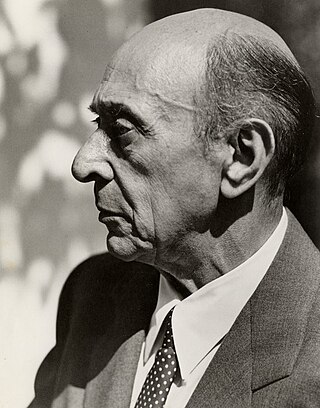
Arnold Schoenberg or Schönberg was an Austrian and American composer, music theorist, teacher and writer. He was among the first modernists who transformed the practice of harmony in 20th-century classical music, and a central element of his music was its use of motives as a means of coherence. He propounded concepts like developing variation, the emancipation of the dissonance, and the "unity of musical space".
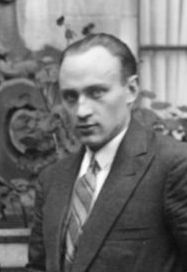
Paul Sacher was a Swiss conductor, patron and billionaire businessman. At the time of his death Sacher was majority shareholder of pharmaceutical company Hoffmann-La Roche and was considered the third richest person in the world with an estimated net worth of US$13 billion.
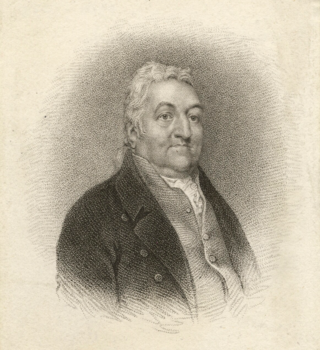
John Stafford Smith was a British composer, church organist, and early musicologist. He was one of the first serious collectors of manuscripts of works by Johann Sebastian Bach and a friend of his son Johann Christian Bach.
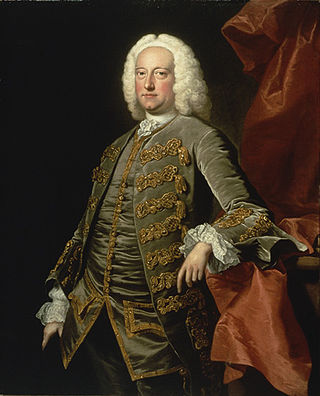
Charles Jennens was an English landowner and patron of the arts. As a friend of Handel, he helped author the libretti of several of his oratorios, most notably Messiah.

Rudolph Ganz was a Swiss-born American pianist, conductor, composer, and music educator.

Jacques-Louis Monod was a French composer, pianist and conductor of 20th century and contemporary music, particularly in the advancement of the music of Charles Ives, Edgard Varèse, Arnold Schoenberg, Anton Webern and uptown music; and was active primarily in New York City and London during the second half of the twentieth century.
Karol Szymanowski’s Violin Concerto No. 1, Op. 35, is considered one of the first modern violin concertos. It rejects traditional tonality and romantic aesthetics.
Variations for piano, Op. 27, is a twelve-tone piece for piano composed by Anton Webern in 1936. It consists of three movements:

Susanne Rode-Breymann is a German musicologist, and from 2010 until March 2024 the president of the Hochschule für Musik, Theater und Medien in Hanover.

Hans Georg Adler (1904–1979) was a German musicologist, collector, and classical music promoter in South Africa.
Tatiana Baranova Monighetti is a Russian musicologist living in Switzerland. She graduated with distinction from the Moscow Conservatory in musicology, piano and organ performance and subsequently studied there as a doctoral student in musicology. 1974-1990 she worked as a professor in the Music Theory department at the same institution. In the 1980s Monihetti developed the first course in Russia of studies on the history of notation for musicologists and an integrated course of music theory for performers. She gave guest lectures in Poland, France and the US and published over sixty articles in scholarly editions. Together with her husband, the well known cellist Ivan Monighetti, she organized the first International Early Music Festival in Russia.
Ulrich Mosch is a German musicologist.
Gisella Selden-Goth was a Hungarian author, composer and musicologist who became an American citizen in 1939. She composed at least four string quartets and donated her large collection of original music manuscripts to the Library of Congress.
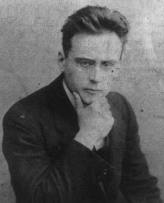
Langsamer Satz is a composition for string quartet in one movement by Anton Webern, written in 1905.
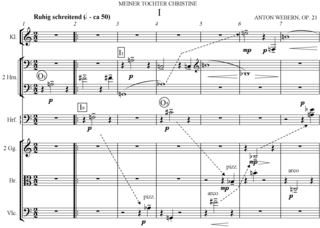
Anton Webern's Symphony, Op. 21 was his first twelve-tone orchestral work. Written between 1927 and 1928, the work is noted for its intricate structure, abstraction, and Alpine topics. It is a two-movement chamber or miniature symphony of 10–20 minutes, and the influence of Gustav Mahler is audible from the very beginning. Alexander Smallens conducted the world premiere at New York's Town Hall on 18 December 1929.

Ruzena Schwartz Herlinger was a Czech-born Canadian singer and voice teacher, noted for performing and promoting the works of contemporary European composers in the 1920s and 1930s.
Hans Moldenhauer was a German-born American musicologist, archivist, and music educator. He was considered an authority on the composer Anton Webern, and founded the Spokane Conservatory of Music in 1946. is best known for compiling the Moldenhauer Archive.














